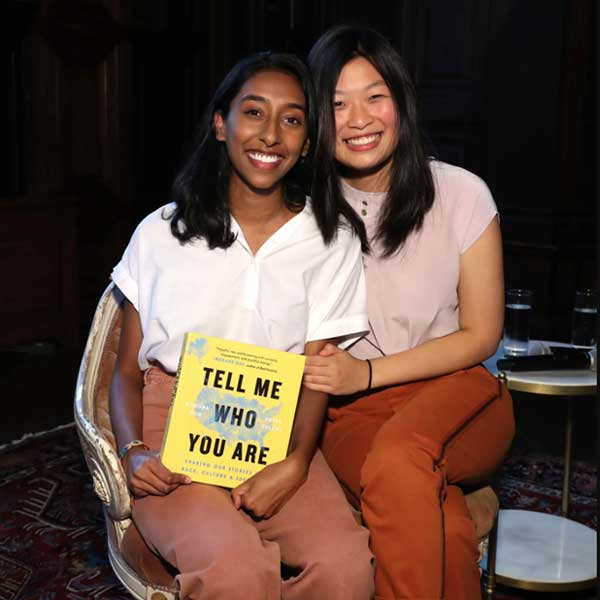Tell Me Who You Are: Sharing Our Stories of Race, Culture & Identity
by Winona Guo and Priya Vulchi
(for use during academic years 2023-2025)
Tell Me Who You Are: Sharing Our Stories of Race, Culture, & Identity, By Winona Guo and Priya Vulchi was selected for the 2023 – 2025 academic years. The Common Experience Taskforce received over 160 votes from the Dallas College faculty, staff and students.

Authors Winona Guo and Priya Vulchi
Penguin Random House describes the book as “An eye-opening exploration of race in America”. The publisher states Guo and Vulchi reveal the lines that separate us based on race or other perceived differences and how telling our stories–and listening deeply to the stories of others–are the first and most crucial steps we can take towards negating racial inequity in our culture. Featuring interviews with over 150 Americans accompanied by their photographs, this intimate toolkit also offers a deep examination of the seeds of racism and strategies for effecting change.
The Common Book Experience Program is an opportunity to engage students, faculty, and staff in on campus activities and open discussions. Activities includes film screenings, lectures, workshops, author Q&As and contests. Copies of the book are available to check out at your local Dallas College Learning Commons.
Additionally, instructors may incorporate the book into their lesson plans and assignments. Free digital copies are available for faculty and students as well as resources to use in your curriculum. Please complete the
General Interest form or contact Dr. Toni Robinson through Teams or via email at
TonietteR@DallasCollege.edu.
To learn more about this book, please use the links below to explore: